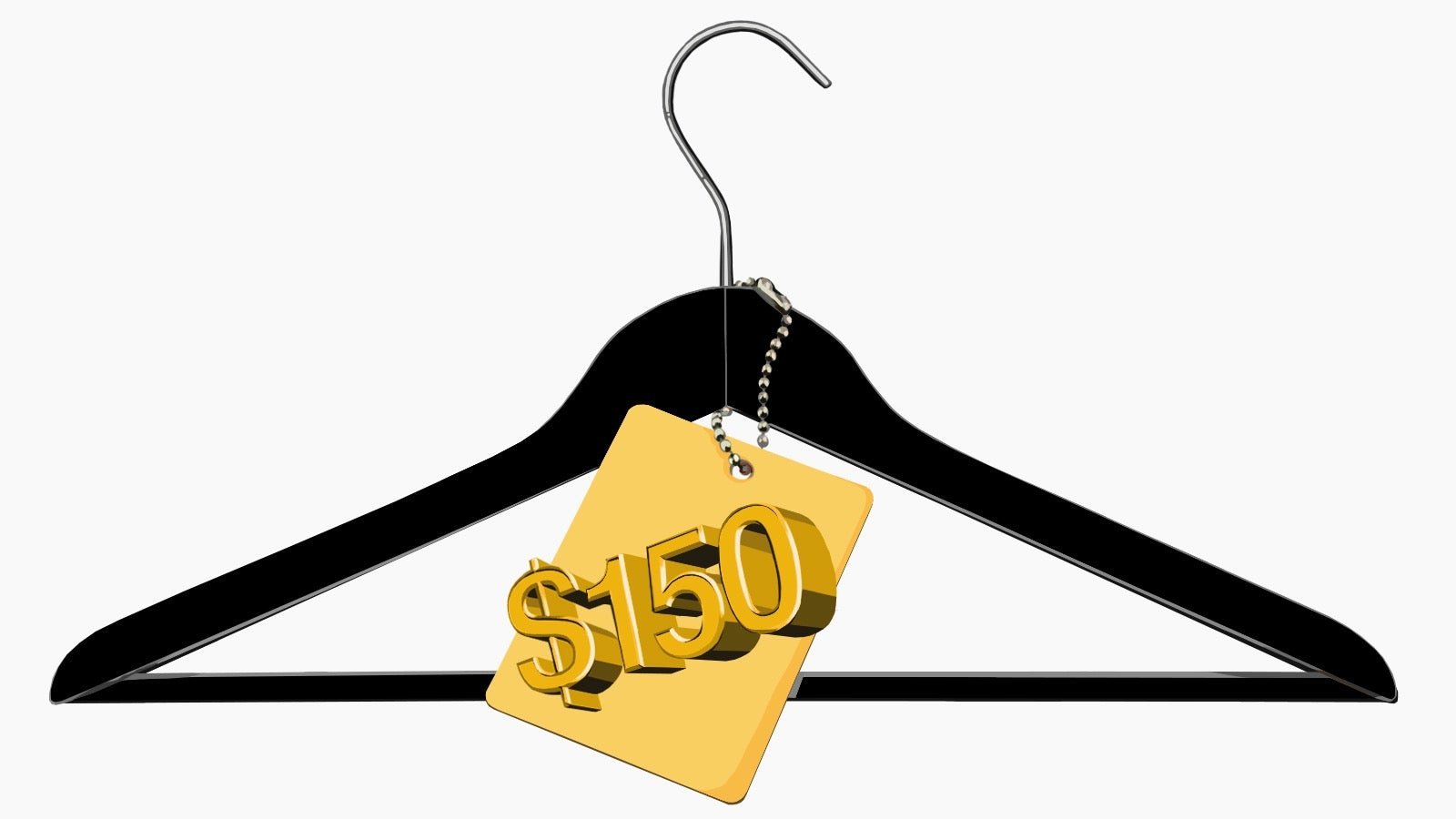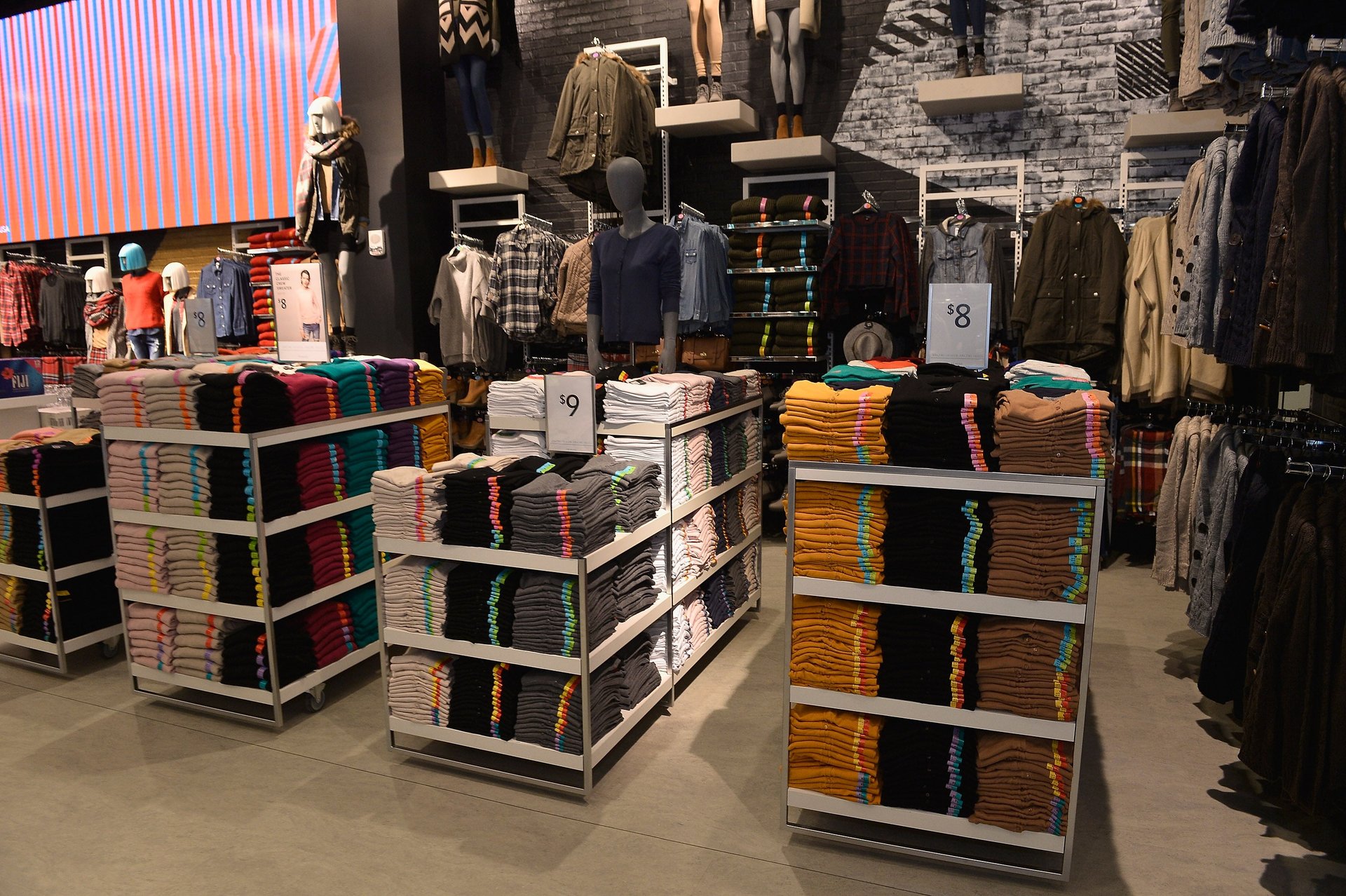Your next item of clothing should be so expensive it hurts
If you’ve ever found yourself buying clothes just because they’re cheap, or if shopping itself has become a form of entertainment for you, I’ve got a proposal: The next time you buy something, spend a whole lot on it. Enough that it makes you sweat a little.


If you’ve ever found yourself buying clothes just because they’re cheap, or if shopping itself has become a form of entertainment for you, I’ve got a proposal: The next time you buy something, spend a whole lot on it. Enough that it makes you sweat a little.
The point is to make you pause and ask yourself, “How much do I really want this?”
In the US and much of the industrialized world, cheap clothes are everywhere. At any fast-fashion chain store, you’ll find piles upon piles of jeans that cost less than $20. The problem is, all that low-cost clothing is produced, sold, and finally discarded in mass quantities, which has serious consequences for the environment, the workers paid poorly to make them, and even the mental well-being of the people buying them.
As a fashion reporter, I like clothes probably more than most. But I also know all the troubling facts represented by those cheap t-shirts and jeans. For more than a year now, I’ve set myself a simple goal for every clothing purchase. It’s an entirely personal choice that I feel helps me buy less and enjoy my purchases more. My hope is that it also reduces how much I contribute to some of those issues mentioned above.
The goal is to spend at least $150 on each item of clothing. And I propose you give it a try.
Let me explain
The immediate reaction I get when I tell people about this goal—and I call it a goal because I don’t always live up to it—is that $150 is a lot to spend for a piece of clothing.
That’s especially true if your standard for pricing is a store like Primark, the insanely cheap Irish fast-fashion chain that recently opened its first US location. For designer fashion, where a t-shirt can easily clear $150, it’s actually a pretty low hurdle.

But it’s enough that it causes me to seriously hesitate, which is the real point. It forces me to think about just how much I want that item of clothing, how much I’ll wear it, and whether I think the value it offers is worth a significant cost.
Importantly, $150 is also enough that I can’t make these purchases all the time, at least not without sacrificing elsewhere or going broke. It’s an investment, rather than the cheap buzz of getting something new.
Now, not everyone should have the same dollar limit. Each person should determine a standard based on income and other financial responsibilities. But it should be just enough that it causes you to wince slightly. My limit—as a married, childless, working journalist, saving up to one day buy an apartment—might fall somewhere between that of a single parent on an hourly wage and that of a high roller like author Buzz Bissinger, who wrote of his addiction to Gucci in GQ. (If you’re shopping like Bissinger, though, setting a dollar floor isn’t going to solve anything.)
But the process for all of us, whether we’re shopping at Forever 21 or Prada, is psychologically similar. Researchers have found that the insula—the part of the brain that registers pain—plays a role in purchase decisions. Our brain weighs the pleasure of acquiring against the pain of paying. As clothing prices decline, that pain does too, making shopping easy entertainment, disconnecting it from our actual clothing needs. It’s something I think of whenever I stumble on the haul videos that have blown up on YouTube in the last few years.
To restore that balance, the price of the clothing we consider purchasing should be high enough that it “hurts” at least a little—and for me, around $150 fulfills that requirement.
So the striped, cotton Dries Van Noten sweater I bought in July came in at $200. I deliberated for some time on that one as I walked around the store.
Last winter, my mid-weight jacket from Japanese label Sage de Cret cost $200, and prompted some soul-searching as I tried to decide how much I really wanted and needed it. I ended up selling an Ann Demeulemeester jacket that didn’t fit quite right to make up for it.
Last fall, I spent more than a week deciding whether to buy a grungy patchwork shirt from Takahiro Miyashita’s label, The Soloist, since it was an online sale and offered no returns. But even at more than $200, it has been well worth it. The amount of thought and detail that went into the shirt impresses me every time I put it on.
All of these items, I should note, were discounted from their original retail prices. But these were still significant purchases for me. I didn’t take them lightly.
On the other hand, I chose not to buy a boiled wool blazer from Sage de Cret that was actually slightly less than the jacket I got. It fit me perfectly, but I wasn’t sure how much use I’d get out of it. At that price, I decided to pass.
I also didn’t buy a pair of grey tweed Haider Ackermann pants, a black Dries Van Noten sweatshirt, and plenty of other items I wanted, purely because my other purchases had already taxed my budget.
But I’ve also resisted cheaper buys. Recently, for example, I considered grabbing a black sweatshirt for $29 at Uniqlo, and I decided to pass. I can afford it, but I can also find something elsewhere that I’ll value more. I’m thinking of trying out my first loopwheeled sweatshirt instead.
The benefits
The ideal consequence of this way of shopping, if you give it a try, isn’t just to buy less, but also to buy better. By forcing myself to seriously consider my purchases, I’ve been more likely to buy clothes I genuinely like and appreciate, rather than accumulating low-cost impulse buys.
It’s a philosophy that has something in common with the guiding principle of Marie Kondo’s book, The Life-Changing Magic of Tidying Up, which has developed a near-religious following. It dictates that only items that spark joy should have a place in your closet. Here, you’re considering the extent of that joy before the item even makes it into your closet.
The quality of my clothing is noticeably better since I set my goal. Cheap clothes are cheap for a reason. Giant retailers keep prices down through economies of scale. They pay less per garment to manufacture 10,000 pieces rather than 1,000, and often want factories to do the work in a short time frame. There’s truth in the saying, “Fast, good, or cheap. Pick two.”
Companies also reduce costs by using lower-quality fabrics and the least expensive construction methods available. Those lesser ingredients make for an inferior finished product.
Of course, it’s the workers sewing the clothes who are typically being squeezed most by the pressure to keeps costs down. I’m all in favor of retailers employing people in countries such as China, Bangladesh, and Vietnam to make clothes. Those jobs have provided essential economic development and are critical to many in warding off poverty. But I think those workers should be paid better—and I’m happy to pay extra if it means their wages are substantial. That’s unlikely when the retail price of a pair of jeans or a shirt is less than $20.
If you buy more expensive clothing, it doesn’t guarantee that your clothes will be exceptionally well-made, or that workers haven’t been exploited in their making. (Some would argue that, at some point in the garment’s production, someone was probably exploited.)
And even expensive clothes are responsible for polluting the environment when the textiles they’re made from are dyed, and when they’re eventually discarded and left to sit in a landfill.
But it may reduce the likelihood of worker exploitation. And if nothing else, spending more should mean buying—and wasting—less. And it hopefully means buying from the brand that came up with the design, rather than one copying it—fast-fashion and some other low-price labels are notorious for knocking off other designers.
It’s a goal, not a rule
There are times when I don’t meet my goal. My t-shirts are not $150 apiece, though most are well over two years old. I did buy a plum-colored Uniqlo sweatshirt and a black linen button-up in the last year, because both were exactly what I wanted. And a few months ago I went to a sample sale held by one of my favorite New York brands and bought a pair of pants for just over $100.
I’m also not immune to a great deal, especially when it comes to buying used clothing. I shop on sites such as eBay, the men’s resale site Grailed, and even Yahoo Japan’s auction site by way of a proxy service. (Japanese shoppers are adventurous, so their market gets some of the best stuff.)
This used clothing feels a worthy exception to my rule, up to a point. Not only is it a form of recycling, but I’m also enough of a fashion nerd that I get excited about finding past-season items I may not have been able to afford the first time around. In those cases, it’s more about the item than the cost, which is the point of my dollar limit anyway.
But I do buy less, and I like what I have more. That in itself has been worth every dollar.